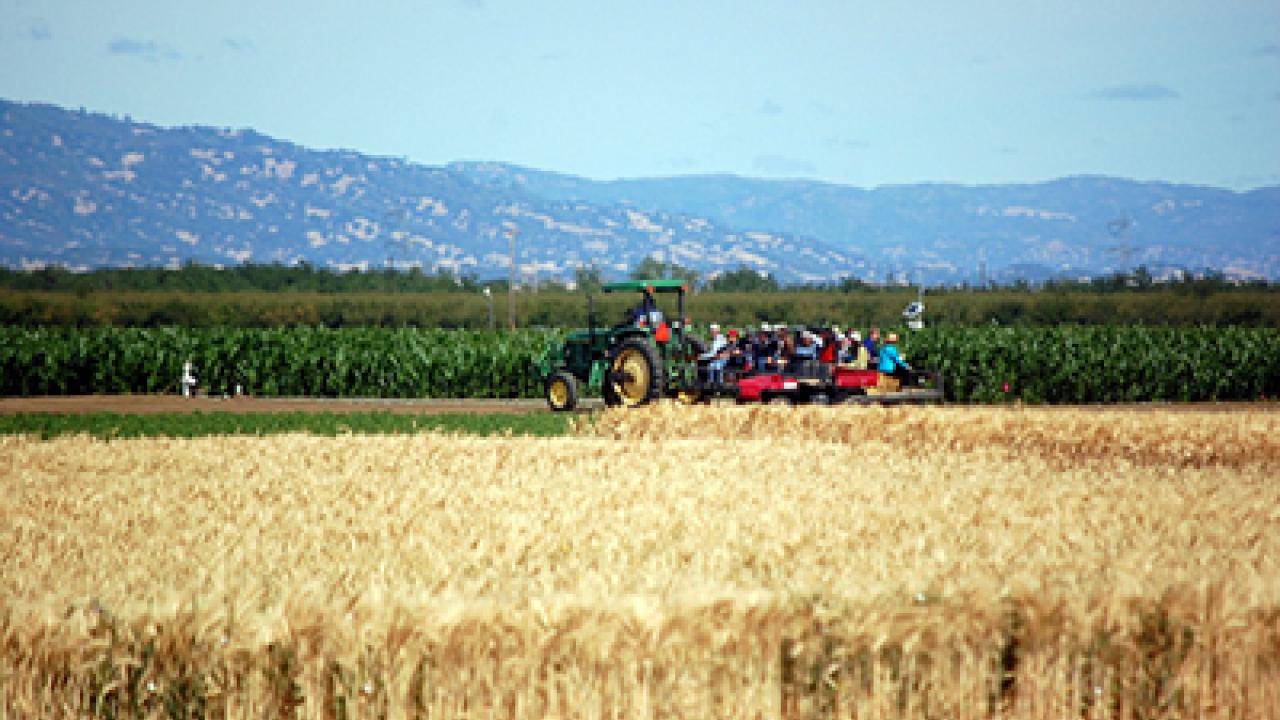
May 14, 2015
A Message from Dean Helene Dillard: Getting to know the people of California
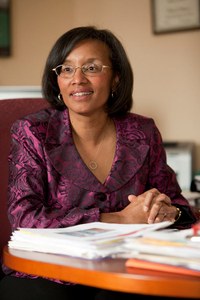 One of my top priorities as dean is to get to know the people of California. Although I was born and raised here, I have spent most of my academic career at Cornell. I’ve been dean of the College of Agricultural and Environmental Sciences for 16 months now. In that time I’ve logged many days and many miles on the road meeting with alumni, donors, industry leaders, agricultural organizations, environmental groups, government agencies, and others who are interested in our research, teaching, extension, and outreach efforts.
One of my top priorities as dean is to get to know the people of California. Although I was born and raised here, I have spent most of my academic career at Cornell. I’ve been dean of the College of Agricultural and Environmental Sciences for 16 months now. In that time I’ve logged many days and many miles on the road meeting with alumni, donors, industry leaders, agricultural organizations, environmental groups, government agencies, and others who are interested in our research, teaching, extension, and outreach efforts.
What I’ve come to appreciate is just how vast and diverse California is — from the orchards and fields of the Central Valley to the forests and rangelands of our coastal and inland mountains to the teeming urban areas. I hear some common themes in my conversations with people. Water certainly tops the list. Others include food systems, nutrition, agricultural sustainability, adaptation to climate change, air quality, drought tolerant landscapes, labor, biodiversity, youth development, community development, and other topics.
These individual discussions and group meetings have been highly valuable. The feedback I receive from all of our stakeholders helps us set our priorities and determine where best to invest our resources in new faculty and facilities. As a land-grant university, we have a long tradition — and responsibility — of advancing the frontiers of science in ways that benefit society and promote economic prosperity. Our college is the catalyst that serves a broad agenda of California concerns.
The residents of this state turn to us because we maintain a highly regarded culture of learning and inquiry that facilitates dialogue and supports top-notch research and education. We can clearly see this in the large number of students and parents who visit the college and UC Davis every year. We received more than 10,000 freshman and transfer student applications for admission into our college in fall 2015; about 4,300 were admitted.
Networking is essential to ensure that we stay on track and make our programs as relevant as we can. So if I’m not in the Dean’s Office on any given day, I’m probably “on the road again” exchanging ideas with the people who depend on us to keep California moving forward.
Helene R. Dillard, Dean
College of Agricultural and Environmental Sciences
hrdillard@ucdavis.edu
Who
Alan Hastings elected to the National Academy of Sciences
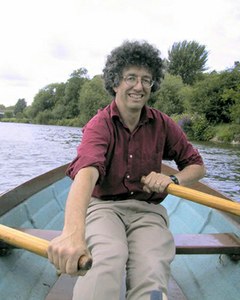 Environmental science and policy professor Alan Hastings has been elected to the National Academy of Sciences (NAS).
Environmental science and policy professor Alan Hastings has been elected to the National Academy of Sciences (NAS).
Hastings, a theoretical ecologist, uses mathematical models to understand shifts in natural systems — from saltmarsh grasses and coral reefs to chaos in ecology. His recent research has helped explain synchronous events in the environment — work applicable to why species go extinct — as well as how humans may be forcing an irreversible “tipping point” for Earth. He developed with collaborators some of the initial models of marine protected areas, showing their value as a management tool. In addition to other influential work, a number of his contributions have helped explain the dynamics of ecological populations and food webs.
NAS is a private, nonprofit institution established under a congressional charter signed by President Abraham Lincoln in 1863. Election to the academy is one of the highest science honors in the United States. The new NAS class comprises 84 members and 21 foreign associates elected in recognition of their distinguished and continuing achievements in original research. The academy has 2,250 active members and 452 foreign associates. UC Davis has 27 NAS members.
Alan Hastings
Department of Environmental Science and Policy
530-752-8116
amhastings@ucdavis.edu
Diane Nelson and Kathy Keatley Garvey win writing and photography awards from ACE
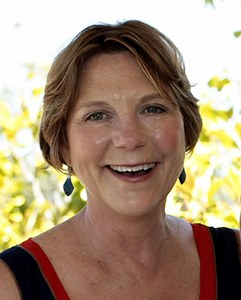
Diane Nelson - Two CA&ES communicators have won a total of five awards from the Association for Communication Excellence in Agriculture, Natural Resources, and Life and Human Sciences (ACE).
- Kathy Keatley Garvey, communications specialist with the Department of Entomology and Nematology, won a gold award in “Writing for Newspapers;” a silver award for “Writing for the Web;” and bronze awards for two photographs.
- Diane Nelson, senior writer with the College of Agricultural and Environmental Sciences’ Dean’s Office, won a gold award for promotional writing. Her article, “When Good Oil Goes Bad,” looks at the award-winning team of UC Davis students who built a biosensor to help ensure olive oil quality for producers, retailers, and consumers.
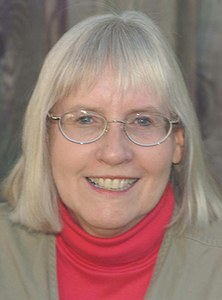
Kathy Keatley Garvey - Garvey's article for best news writing featured forensic entomologist Robert Kimsey's plans for a field trip to Alcatraz, a day that happened to fall on Super Bowl Sunday. Her silver award for web writing — “What’s for Lunch?” — focused on a lady beetle eating aphids. She received bronze awards for a photo of a praying mantis eating a western tiger swallowtail and another photo of participants at the 2014 “Bugs and Beer” event sponsored by the Robert Mondavi Institute for Wine and Food Science.
Nelson and Garvey will receive their awards at the ACE conference in June in Charleston, S.C. To learn more about these stories, photos, and the awards, read Garvey’s blog post in Entomology and Nematology News.
Diane Nelson
CA&ES Dean’s Office
530-7521969
denelson@ucdavis.edu
Kathy Keatley Garvey
Department of Entomology and Nematology
530-754-6894
kegarvey@ucdavis.edu
What
UC Davis opens Life Sciences Innovation Center in Chile
Michelle Bachelet, president of Chile, UC Davis chancellor Linda P.B. Katehi, and U.S. Ambassador Michael A. Hammer opened the UC Davis–Chile Life Sciences Innovation Center in Santiago, Chile in April. The center will foster collaborative work among experts from UC Davis and Chile, and is aimed at transforming public-sector research into regional, national, and global business opportunities.
The center is funded through a grant from the Corporacion de Fomento de la Produccion de Chile, or CORFO, the country's economic development agency, and industry and university partner cost-sharing. Research will take place at UC Davis and partner institutions. The center is led by founding executive director Alan B. Bennett, distinguished professor of plant sciences at UC Davis.
The center's long-term goal is to support research, development, and economic competitiveness in Chile and California with a focus on the agriculture industry, including plant breeding, postharvest, and climate-change technologies. The center has a projected budget of $12 million over its first three years. Read more.
Alan Bennett
Department of Plant Sciences
530-752-1411
abbennett@ucdavis.edu
Arboretum and Public Garden events
For more information, visit the arboretum website: http://arboretum.ucdavis.edu.
Stargazing in the White Flower Garden
Friday, May 15, 9 p.m., Arboretum Gazebo
Join a relaxed evening appreciating the night sky. Appropriate for the whole family, this free event is sponsored by the Arboretum Ambassadors.
Nature Discovery Drop-in Day
Saturday, May 16, noon to 2 p.m., Arboretum GATEway Garden (adjacent to Davis Commons Shopping Center)
Drop in on an all-ages program at the east end of the arboretum. Topics include ecology, biodiversity, sustainability, and more. Enjoy hands-on activities and demonstrations.
Public Plant Sale
Saturday, May 16, 9 a.m. to 1 p.m. Arboretum Teaching Nursery
The UC Davis Arboretum Teaching Nursery opens its doors to the public for the last of three plant sales this spring. The arboretum has a large assortment of regionally adapted, water thrifty, and beautiful plants that would help spruce up the yard. The nursery is located toward the west end of the arboretum on Garrod Drive. Arboretum members receive 10 percent off plant purchases.
Storytime through the Seasons: Under the Tuscan Sun
Sunday, May 17, 1–3 p.m., Arboretum Gazebo
Explore the natural, cultural, and flavorful world of the Mediterranean in this program for children and families. Take part in readings, tastings, and hands-on activities in the Arboretum’s spectacular Mediterranean Collection. Sponsored by the Arboretum Ambassadors.
Folk Music Jam Sessions
Fridays, May 22, June 5 and 19, noon–1 p.m., Wyatt Deck
Folk musicians are invited to bring their acoustic instruments and play together informally over the lunch hour. All skill levels are welcome, and listeners are invited.
Bugtopia 4.0: Discover Everyday Insects
Saturday, May 30, 1–3 p.m., Arboretum Gazebo
Learn about the hidden insect wonders of the Arboretum from UC Davis Entomology Club members and Arboretum Ambassadors. Tour the collections and learn insect names, trapping methods, and ecology.
Wild Family Day
Sunday, May 31, 1–3 p.m., Arboretum GATEway Garden (adjacent to the Davis Commons Shopping Center)
Join Wild Campus — a UC Davis student organization dedicated to the conservation of local flora and fauna — in partnership with the Arboretum and Public Garden for the fourth annual Wild Family Day. Enjoy games and activities, as well as educational displays and live animals. For more details, email wildcampus411@gmail.com.
Yoga in the Arboretum
Sunday, May 31, 1–2:30 p.m., just east of Putah Creek Lodge (rain location: Environmental Horticulture 146)
Ninety minutes of yoga appropriate for all skill levels led by certified instructor Loshan Ostrava. Dress comfortably. Bring a towel or yoga mat and water bottle. Sponsored by the Arboretum Ambassadors.
Fourth annual Farewell Reading of UC Davis Creative Writing
Wednesday, June 10, 7 p.m., Wyatt Deck
The Creative Writing Master of Arts program and the arboretum present the annual student reading. Graduating writers will read selections from their work.
Walk with Warren
Wednesday, June 10, noon, west end gardens, meet at the Arboretum Gazebo
Join Warren Roberts, superintendent emeritus of the UC Davis Arboretum and Public Garden, to discover seasonal color in the arboretum’s gardens and plant collections.
Camp Shakespeare
Session One (ages 8–12): July 6–17, Monday–Friday; Session Two (ages 8–12): July 20–31, Monday–Friday
The Davis Shakespeare Ensemble and the arboretum invite campers to participate in Camp Shakespeare for exciting theater games, acting workshops, and a special camp production. This summer campers will play pirates, clowns, and long-lost twins in one of Shakespeare’s best comedies, Twelfth Night. For more details and online enrollment, visit www.shakespearedavis.com.
When
Postdoctoral Research Symposium: May 14, 2015
UC Davis postdoctoral researchers will give 10-minute talks and display posters at a research symposium to be held May 14 from 9 a.m. to 5:30 p.m. in the Memorial Union. Awards will be given for the best talks and posters.
Nationwide, 50 percent of scientific articles have a postdoc as first author. UC Davis has approximately 800 postdoctoral researchers, and more than 200 of them are in the College of Agricultural and Environmental Sciences. Organizers of the Postdoctoral Research Symposium expect 54 short talks and 50 posters. About 120 abstracts were submitted before the deadline.
The entire campus community is welcome to attend this free symposium.
Kaisa Kajala
UC Davis Genome Center
530-752-2537
kkajala@ucdavis.edu
Seed Central networking event: May 14, 2015
Seed Central hosts speakers and networking events that bring together seed and food professionals, UC Davis faculty, scientists, and students. The May 14 event will be held in the UC Davis Activities and Recreation Center, Ballroom A.
Networking runs from 4:30 to 6 p.m. The featured speaker is Charles Brummer, director of the UC Davis Plant Breeding Center. He will address the group from 6 to 7 p.m.
A special session on plant breeding will also take place in the same location from 1:30 to 4 p.m. Speakers include Allen Van Deynze, research director for the UC Davis Seed Biotechnology Center; Heather Koshinsky, with Eureka Genomics; and Kent McKenzie, director of the Rice Experiment Station.
On June 25, Seed Central will be held in Salinas and feature USDA/ARS research geneticist Ryan Hayes discussing lettuce breeding and genetics.
These events are free, but an RSVP is requested. Register for the May 14 event. More information is available at http://www.seedcentral.org/calendarofevents.htm.
Kathleen Bess-Esparza
Department of Plant Sciences
530-754-2162
klesparza@ucdavis.edu
Russell Ranch Sustainable Agriculture Field Day: May 21, 2015
Scientists and industry partners will share the latest research on using tools and amendments to improve nitrogen cycling at the 2015 Russell Ranch Sustainable Agriculture Field Day. The field day will be held from 8 a.m. to 1:30 p.m. on Thursday, May 21, at the Russell Ranch Sustainable Agriculture Facility west of campus.
The field day brings together farmers, students, researchers, and UC Cooperative Extension farm advisors and specialists to discuss sustainable agriculture. The theme this year is “Nitrogen through soil, space and time: using tools to improve N cycling.” Topics covered include biochar, compost, cover crops, nitrification inhibitors, N mineralization predictions, pre-plant soil sampling, airborne remote sensing and in-field sensing tools.
Registration is open until May 15. There is no charge for farmers to attend. Admission for others is $10 ($5 for students). Students and farmers should e-mail Emma Torbert at eetorbert@ucdavis.edu for a coupon code. Admission includes lunch, refreshments, and tours.
Find directions to Russell Ranch at http://russellranch.ucdavis.edu/directions. To register and learn more.
Emma Torbert
Agricultural Sustainability Institute
530-752-5208
eetorbert@ucdavis.edu
CA&ES annual spring faculty meeting: May 28, 2015
The annual spring faculty meeting for the College of Agricultural and Environmental Sciences will be held May 28 in the AGR Room of the Buehler Alumni Center from 4 to 6 p.m. Mark your calendars and plan to attend.
Brenda Nakamoto
CA&ES Dean’s Office
530-752-1606
bvnakamoto@ucdavis.edu
Plant Breeding for Food Security — the Global Impact of Plant Genetics in Rice Production: May 28, 2015
The Plant Breeding Center and the Confucius Institute are holding a symposium May 28 to honor Gurdev Khush, the UC Davis alumnus, adjunct professor, and internationally known rice breeder. “Plant Breeding for Food Security—the Global Impact of Plant Genetics in Rice Production” will be held 8:30 a.m. to 4:30 p.m. at the UC Davis Conference Center.
Khush received his Ph.D. from UC Davis in 1960 and went on to become the head of plant breeding at the International Rice Research Institute (IRRI) in the Philippines. A key leader in the “Green Revolution,” he helped develop more than 300 strains of rice. The IR64 variety produced a higher volume of grains per plant and is credited with vastly improving the global supply of rice during a period of extensive population growth. He has been honored with the World Food Prize, the Borlaug Award, and the Japan Prize. He returned to UC Davis as an adjunct professor in 2002.
The symposium includes speakers who will address the global impact of Khush’s work, past and present, and the future of food security with an ever-growing world population. To register.
Amanda Pietras
Plant Breeding Center
530-752-2159
ampietras@ucdavis.edu
Have Agricultural Teachers Been Sufficiently Trained?: June 1, 2015
Benjamin Swan, an associate professor of agricultural education and communication at Cal Poly, San Luis Obispo, will present a seminar Monday, June 1, from 4 to 5 p.m. for the Western Center for Agricultural Health and Safety. His topic: Have Agricultural Teachers Been Sufficiently Trained and are They Training Their Students in Ag Safety and Health Topics?
Location of the seminar is the Center for Health and the Environment on Old Davis Road, about one mile south of campus. The lecture is free and open to the public. No parking permit is required.
Suzette Smiley-Jewell
Western Center for Agricultural Health and Safety
530-752-2723
smsmiley@ucdavis.edu
Postharvest Technology of Horticultural Crops Short Course: June 15–26, 2015
Enrollment is open for the 37th annual Postharvest Technology of Horticultural Crops Short Course. The two-week course will be held June 15–26 at the UC Davis Activities and Recreation Center.
The course, organized by the UC Davis Postharvest Technology Center, is an intensive study of the biology and current technologies used for handling fruits, nuts, vegetables, and ornamentals in California. It is designed for research and extension workers, quality control personnel in the produce industry, and business, government, and academic professionals interested in current advances in the postharvest technology of horticultural crops. The course will be of particular interest to technical professionals responsible for quality assurance, research, and extension activities related to fresh produce quality, safety, and marketability.
The two-week lecture and field trip option is limited to 55 participants; the registration fee is $2,995. A one-week lecture-only option is limited to 25 participants; the registration fee is $1,975. To learn more and to register.
Penny Stockdale
UC Davis Postharvest Technology Center
530-752-7672
pastockdale@ucdavis.edu
Weed Day: July 16, 2015
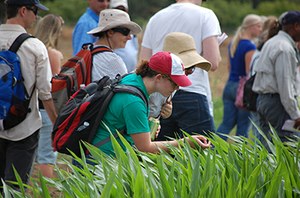 The 59th annual Weed Day will be held Thursday, July 16, from 7:30 a.m. to 4:30 p.m., beginning on campus at the Buehler Alumni Center and subsequently heading out for a field tour. Weed Day gives pest control advisers, UC farm advisors, chemical company cooperators, faculty, students, and regulatory officials the opportunity to learn more about current weed science research at UC Davis.
The 59th annual Weed Day will be held Thursday, July 16, from 7:30 a.m. to 4:30 p.m., beginning on campus at the Buehler Alumni Center and subsequently heading out for a field tour. Weed Day gives pest control advisers, UC farm advisors, chemical company cooperators, faculty, students, and regulatory officials the opportunity to learn more about current weed science research at UC Davis.
The morning field tour will include herbicide research in annual fruit and vegetable crops, crop safety and herbicide symptomology demonstrations, aquatic weeds research, grassland weed invasion and restoration research, and a weed identification challenge. Lunch and afternoon presentations will be indoors in the Buehler Alumni Center. UC staff and students will present information on projects that are not in-season or are located off campus.
For more details and to register, visit http://wric.ucdavis.edu and click on Weed Day 2015.
Gale Pérez
UC Weed Research and Information Center
530-752-1748
gperez@ucdavis.edu
Weed Science School: August 18–20, 2015
Weed Science School takes place August 18–20 at the Bowley Plant Science Teaching Center. This intensive course focuses on the mode and mechanism of herbicide activity in plants and the fate of herbicides in the environment.
The school is designed for those involved in consulting, research, development, or sales of agricultural chemicals in either the private or public sector and provides a rare opportunity for professionals to efficiently update their understanding of weed science and the action of herbicides in the plant and in the environment. Emphasis is on herbicides registered for use in California and important weeds within the state.
Early registration is $675 until July 18; $775 thereafter. In addition, a discounted registration of $375 is available for two UC farm advisors and two current students. Registration and agenda information.
Gale Pérez
UC Weed Research and Information Center
530-752-1748
gperez@ucdavis.edu
International Conference on Fresh-cut Produce — Maintaining Quality and Safety: September 13–18, 2015
Registrations are being accepted for the third International Conference on Fresh-cut Produce — Maintaining Quality and Safety. The conference will be held on the UC Davis campus September 13–16, with an optional two-day technical tour September 17–18. Conference attendance is limited to 200 registrants.
The conference is organized by UC Cooperative Extension specialist Marita Cantwell under the aegis of the International Society for Horticultural Science. General topics include quality and product development, temperature and handling logistics, preparation and processing, packaging and modified atmospheres, food safety and sanitation, and marketing and consumer acceptance. An industry–academia panel also is planned, focusing on future industry needs and emerging technologies in fresh-cut products.
Register and learn more. The conference will take the place of the annual fresh-cut workshop in 2015.
Penny Stockdale
UC Davis Postharvest Technology Center
530-752-7672
pastockdale@ucdavis.edu
Produce safety — a Science-based Framework Workshop: November 3–5, 2015
The UC Davis Postharvest Technology Center is offering a workshop November 3–5 on developing a scientific framework for produce microbial safety systems and preventive controls. The course is designed primarily for entering and junior-level produce safety professionals and others with an interest in produce safety education.
Course content will provide participants with a basis for decision making on topics common to industry guidance standards, as well as federal regulatory compliance. The curriculum is a blend of fundamental, applied, and practical information. The course includes formal lectures, group assessments, and break-out groups. The curriculum includes the scientific basis for audit standards and preparing for using audits and targeted microbiological testing to improve performance.
The course will be held in the ballroom at the UC Davis Conference Center. Enrollment is $950 and includes all instruction, course material, a networking reception, and two lunches. For additional information and to enroll, visit the course website. Enrollment is requested no later than October 23, 2015.
Penny Stockdale
Postharvest Technology Center
530-752-7672
pastockdale@ucdavis.edu
* * * * * * * * * * * * * *
Visit CA&ES Currents online at http://www.caes.ucdavis.edu/news/publications/currents.
CA&ES Currents, the faculty/staff newsletter of the College of Agricultural and Environmental Sciences at the University of California, Davis, is published monthly. Send news items to editor, jdstumbos@ucdavis.edu.
Editor: John Stumbos
Writing: Helene Dillard, John Stumbos
Editorial review: Ann Filmer, Julie Fritz-Rubert, Thomas Kaiser, Christine Schmidt
To be added to or deleted from this electronic newsletter list, please send an e-mail to: caeseditor@agdean.ucdavis.edu.
The University of California does not discriminate in any of its policies, procedures, or practices.
The university is an affirmative action/equal opportunity employer.